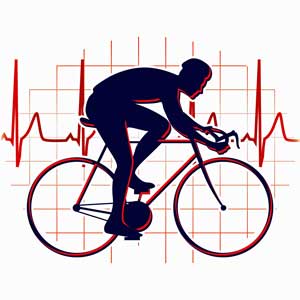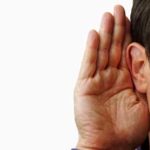



Is the Two Day Exercise Test Ready for the Big Time?
The results I described above are quite foreign and illogical to those who are accustomed to predictable physiological responses to physical activity stress- so skeptics abound, particularly when they know nothing about ME/CFS. Dr. Betsy Keller
Study Results
Is the two-day exercise test ready for the big time? Has it been validated sufficiently to be employed in a big study like the CDC’s multi-center study? Some believe not and, indeed, the results are fairly sparse – 71 patients and 102 controls in three studies.
The results are not completely consistent either; some chronic fatigue syndrome studies have found significantly reduced VO2 max and others have found significantly reduced energy out at ventilatory threshold.
The fact that all three studies found significantly reduced energy output on the second exercise test, however, is encouraging; thus far all studies validate ME/CFS patients claim that their ability to exercise – their exercise capacity – is reduced. This is the only test that’s been able to do that.
Those results prompted ME/CFS advocates to request that the CDC employ the 2-day test-retest exercise protocol in their 2014 multi-center study. That request was denied.
Disability Exams
Anecdotal evidence from disability exams provides more support for the idea that exercise capacity is impaired in ME/CFS. Anecdotal evidence can be important in a poorly funded disorder but it will never be able to compete with evidence from rigorously designed studies.
The disability evidence of diminished exercise capacity probably extend to several hundred patients. We know that many people with ME/CFS apply for disability, but ‘many people’ is not everybody; people applying for disability present a specific slice of the chronic fatigue syndrome population. They’re probably sicker, for instance, and thus are probably more likely to ‘fail’ an exercise test than someone not applying for disability.
Still, they provide another data source that helps us understand the effects of the 2-day exercise test in ME/CFS.
Besides the Workwell researchers, Dr. Betsy Keller is the only exercise physiologist (I know of) who regularly puts ME/CFS patients seeking disability through two-day exercise tests. A professor in the Department of Exercise and Sport Science at Ithaca College in New York, Dr. Keller received her M.S and Ph.D in exercise science.
Staci Stevens suggested I contact Dr. Keller to find out what was popping up in her disability exams, and last June I contacted her. Here’s what she had to say.
Dr. Betsy Keller Talks on Exercise Testing in Chronic Fatigue Syndrome (ME/CFS)
“I thought our metabolic cart went out of calibration because the results were so unusual.” Dr. Betsy Keller

Dr. Keller on the East Coast and Workwell on the West Coast use 2-day exercise testing t prove disability in ME/CFS
So far as we know there are two people who are using two-day exercise tests to gather evidence for disability for people with ME/CFS. What lead to you begin doing this?
I’ve been testing patients with ME/CFS at the Ithaca College Wellness Clinic since 2003. I presently test patients who contact me because they need documentation of their disability. I provide a report of the findings that patients can submit if they wish. I think our findings parallel those of Staci and her group quite consistently.
The first patient I tested was a local woman who was not able to get to Staci’s lab. Like Staci, I thought our metabolic cart went out of calibration because the results were so unusual. A quick recalibration confirmed that the equipment worked as it should, but the physiological response to physical activity in this person was highly unusual.
A two-test CPET protocol is necessary if one wants to document a PEM-related decrease in physical function. Dr. Betsy Keller
You said the results were so unusual that you actually recalibrated your equipment to ensure it was working properly. What kind of results are you getting?
While I cannot predict exactly how those with ME/CFS will respond to the cardiopulmonary exercise tests (CPET), I do know that the response is likely to be abnormal in one of several ways. Most often, ME/CFS patients are unable to reproduce maximum oxygen consumption (VO2max) achieved on test 1 during test 2. I

Highly unusual test results caused Dr. Keller to recalibrate her instruments to see if something was off….
It is well documented that healthy subjects are able to reproduce VO2max within 6-7% variation or less, whereas ME/CFS patients usually exhibit a drop in VO2max presumably due to metabolic anomalies that follow test 1, which we call post-exertional malaise (PEM).
We don’t know why this occurs; but for one with ME/CFS, it certainly helps to validate claims of fatigue, brain fog, pain, etc., when this VO2max decrement occurs.
The gas exchange measurements made during the CPET also provide a metric of the functional decrement experienced by the ME/CFS patient after post-exertional malaise has occurred, which is why a two-test CPET protocol is necessary if one wants to document a PEM-related decrease in physical function.
Other abnormal responses sometimes include a decrease in anaerobic threshold (AT) from test 1 to test 2, which means that, when fatigued, a person with CFS will have an even lower threshold for physical activity. Additionally in some cases, because the nervous system does not communicate appropriately with the cardiovascular system in ME/CFS (autonomic dysregulation), differences in the hemodynamic response (heart rate, blood pressure) to exercise can occur from test 1 to test 2 as well.
In healthy subjects, these variables are quite stable from test 1 to test 2.
Much of the research on exercise and cardio/pulmonary/metabolic responses has been done by those who typically study low-function diseases (heart, lung, muscle), or exercise by healthy people. The results I described above are quite foreign and illogical to those who are accustomed to predictable physiological responses to physical activity stress- so skeptics abound, particularly when they know nothing about ME/CFS.
Do you have a paper in the works, and if so could you give an general idea of its content? Do you have a publication date?
I do have a manuscript in preparation related to exercise testing in ME/CFS.

There are a few others in my area who do (or have done) research on ME/CFS/FM, but as a field, sports medicine/exercise science has been slow to recognize the impact of ME/CFS.
(In some ways the opposite is true as well. ME/CFS researchers often use exercise challenges to provoke abnormalities in their given field; ie immunologists will look immune abnormalities, pain researchers look for pain factors, etc. but two-day exercise testing that explores ME/CFS patients ability to produce energy is rare. Uncovering the metabolic abnormalities that prevent people with ME/CFS from exercising, for instance, did not make OMI-MERIT’s top ten project list.
The ‘agenda’ in ME/CFS research is set by the researchers working in the disorder, and, to date, exercise physiologists are rare in a field dominated by immunologists, neurologists, etc.
In fact, outside of heart and lung disease exercise testing is rare is disease (but is common in Sports Medicine. The American Heart Association asserts exercise testing is underutilized even in heart disease. Dr. Snell has remarked how difficult it is to find the right journal to publish in. )
So far as you know is this pattern unique to chronic fatigue syndrome?
Not sure- there are a couple of patient groups who can’t reproduce VO2max, but have a definitive and objectively diagnosed disease, whereas those with ME/CFS do not since there is no objective indicator of the illness.
Would you be willing to hazard a guess as to what’s going on?
No – blood flow appears to be compromised (and oxygenation), but I think that’s a symptom not a cause.
Do you believe the same issue is occurring in overtraining syndrome?
I’m guessing you’ve discussed this with Staci, as have I. Such a study about overtraining has yet to happen. We see overtrained athletes recover and return to competition; we see far less of that with ME/CFS.
I hope that future publications from the Workwell Foundation and from our lab will provide additional convincing evidence that the two-test CPET protocol can document physiologic dysfunction and post-exertional malaise in ME/CFS patients.
Validating Disability Using Exercise Testing
I STRONGLY recommend that anyone who needs to provide documented evidence of the extent of their CFS fatigue or existence of PEM make their way to Ithaca for Dr. Keller’s two-day exercise tolerance test…. It provided terrific evidence for my disability appeal, plus I have never had any other doctor so generous with her time in explaining my test results as Dr. Keller was. She’s a PhD physiologist, not an MD, which might explain some of her willingness to devote time to me, but she’s also simply a very caring as well as very intelligent person. Her entire staff demonstrated a real concern for her patients. Phoenix Rising Forums
- West Coast – Workwell Foundation
- East Coast – Dr. Betsy Keller – Ithaca College
Find more on exercise based research and treatment options at our Exercise Resource Center here
Enjoying Health Rising?
Donate To Keep Health Rising…Rising








Sounds like getting the 2-day exercise test studies replicated by an independent group is becoming a top priority. I wonder if the CAA would consider possibly changing or alternating from their usual strategy of receiving applications and go for a direct route of commissioning a study in this case?
I don’t know if they’d do that but they certainly could. The CAA did that before, I believe, when they commissioned an XMRV study.
I have a CFS diagnosis and had this testing done in Ithaca last month. I didn’t show the 2nd day response on VO2Max or AT. My numbers were very low, but consistent both days. I did have a different result day 2 under the hemodynamic category, specifically my blood pressure didn’t respond appropriately during the latter half of the test which I was told could have been the result of PEM induced autonomic instability. However, I have POTS (probably from autonomic neuropathy) which doesn’t always act exactly the same everyday and could also explain this result. Have enough people with CFS had this testing done to prove that this is a definitive biomarker? I know of another person with CFS who had the testing done and also performed poorly, but consistently both days. I’m concerned that we’re prematurely pushing this 2nd day testing issue without more proof that it’s a consistent result in most CFS patients. Have a lot people in the real world actually gone and had the test done and showed the 2nd day response? I’m worried that people like me who may actually have CFS, but don’t show the 2nd day change will lose their diagnosis. Of course it’s also possible I’m just misdiagnosed. I’m glad I went for the testing though because even if I didn’t get the proof of CFS I was looking for, I did get other information that I need to pursue. My VO2 Max is very very low and this information may help explain why I feel so terrible – now I need to find out *why* it’s so low.
I think your results show why this testing is valuable; even though you didn’t fit a certain profile it did show that you have significant abnormalities in VO2max and blood pressure regulation.
I imagine that the more people who do this test the more abnormalities will show up. Dr. Newton’s studies suggest that autonomic nervous system problems underlie all sorts of fatigue issues in other diseases. I think you’re probably just a subset of a larger subset of patients with autonomic and energy production issues.
The goal, in my opinion, is not necessarily to get a diagnostic marker but to open up this area for more research which will illuminate what’s going on with you as well.
With regards to low energy production at VO2 max or ventilatory threshold; we have three studies and the experience of two experts in the field that these are common problems in ME/CFS but we do need more study, for sure.
Good luck on finding out what’s causing your low VO2 max result.
I agree Cort. I think the testing is worthwhile for anyone struggling with extreme fatigue, energy problems, malaise, exercise intolerance. You really get a lot of information out of the results. And Dr. Keller was very kind, took a lot of time talking to me and explaining things, seems to really care. I also didn’t have any bad health effects that people seem worried about as a result of the test. It was an overall positive experience. It just seems all the emphasis is on that 2nd day change and if that doesn’t happen, then what, you don’t have CFS? I guess time and more studies on us will tell.
I think this illness is so fluid with so many subtypes that there never will a true ME/CFS. Instead, I think researchers will uncover fundamental problems that give rise a variety of similar illnesses; similar to what Marco suggests with this neuroinflammatory hypothesis.
And I think you and I (I don’t what my test retest scores are) will be right in there. 🙂
Somehow it seems like I remember that either in the Pacific Fatigue Lab’s application for NIH funding or in some of their previous studies, only about half of the patients showed the 2nd day decrease. If I am remembering this (at least somewhat) correctly, how did it go from roughly 50% of patients showing the abnormality to the test being almost diagnostic for the disease, ie in the 90% range? Am I mistaken about the 50% figure?
It’s possible. I don’t know if any other study attempted to diagnose patients based on exercise results.
I looked at the Vermoulen study. A small one but the results just pop out at you; lower work rates (in fact the work rate in healthy controls increased in the second test), oxygen uptake, oxygen pulse – all highly significant.
The work rate was 4.40 ± 9.66 W less in the patient group and 7.67 ± 19.50 W higher in the control group (P = 0.002, 95% CI: -23.6; -0.55). Such differences were also found for the oxygen pulse (-0.67 ± 0.93 mL/beat versus 0.25 ± 1.09 mL/beat; P = 0.014, 95% CI: -1.68; -0.16) and oxygen uptake (-0.87 ± 1.07 mL/kg versus 1.07 ± 2.63 mL/kg; P = 0.001, 95% CI: -3.61; -0.26).
Similar changes were found at maximal work rate: The work rate was 6.33 ± 11.5 W less in the patient group and 11.1 ± 18.3 W higher in the control group (P < 0.001, 95% CI: -28.8; -5.99). And the changes in the oxygen uptake were likewise (-1.33 ± 1.68 mL/kg versus 0.73 ± 1.39 mL/kg; P < 0.001, 95% CI: -3.22; -0.92). The improvement in the performance of the controls is likely due to the effect of training. In the group of patients the performance is the result of a similar training effect which is counteracted by the effect of the postexertional malaise.
I haven’t had the two day test, but did have a one day test and also scored very low. And in my search for information about my illness, in reading Ritchie Shoemaker’s Surviving Mold he states that “most mold illness patients will have a VO2max so low they qualify for a Class III or IV cardiac disability.” I qualify as Class III. I find it interesting that I felt biotoxins were a component of my CFS before I learned this, when most of what I have read says CFS/ME patients have a relatively normal one day exercise test. I do find that hard to believe however, as debilitating as this illness is for most. And it makes me wonder if those participating in the one day exercise tests aren’t mostly highly functioning patients.
If i understand correctly from specialists it it also possible that very bad results shows up with a singel CPET test. This group do not need a second test to validate there disability. But the problem with a single test is that they can say: ‘o, you are deconditioned’.
Yes Gijs, this was another concern of mine – the whole deconditioning theory. I even thought to myself ok, if I score low, but consistently, maybe I’m just deconditioned and need to exercise. The thing is the average VO2 max for a sedentary female my age is around 26-30. I scored a 17. I know my own activity level and I at least match a sedentary lifestyle, probably surpass it a bit because I have two young children and have to push myself a little. When they assess surgery candidates with CPET they want the AT score to be above 11 because if not, your risk for complications and death is much higher. I’m at a 9.6. Why? I’m not 90, not bedridden – it doesn’t make sense. And for the people stuck in bed maybe this is what put them to bed to begin with! No, we’re sick, something is definitely wrong.
I understand you have POTS? If you have POTS this CPET and Vo2max is not reliable because they measure you maximum hartrate at one point. Your hartrate is already very high when you sit on the bicycle, correct?
Gijs – My heart rate is typically highest when I’m standing and can sometimes be a little high when sitting. Good thing the test is on a bike, not a treadmill. During the beginning of the test, at rest just sitting on the bike, my heart rate was 82 the first day and 90 the second day. Ha, just noticed my heart rate was 5-10 points higher the 2nd day throughout most of the test. That’s interesting. Anyway, according to the report my heart rate responded normally throughout the test, so the POTS didn’t seem to be a factor on this measure.
Hi Cort, Is the CDC looking for NK-Cel Dysfunction in there study?
Yes, they are. I’m not sure if they’re incorporating it with the exercise study but it does appear to be in the study.
I think it would be interesting to know whether Dr. Keller knew someone with ME, perhaps a relative or friend? It just seems that so many of the medical professionals who study and treat ME patients entered the field as a result of a personal connection like that … or as a result of a patient of theirs presenting with ME. It seems from your article that her introduction was through a patient. Good for her to agree to do the protocol and then to follow through with it the way she has. We need more medical professionals like her.
What were the other conditions to show a lack of reproducibility in VO2Max or other metabolic parameters I wonder?
Yes, people with a variety of serious disorders from heart disease to kidney disease to COPD have been able to reproduce their results on the second day – as have healthy controls.
I have a list of about 12 studies, most fairly small – showing this. None showed a drop the second day.
I have been on disability since I was 53. Of course, at 65, it became Medicare. My ME/CFS started with very bad sinus infection that wouldn’t go away. I sleep 12 hours a day. It was very difficult and painful emotionally for me to try and get a diagnosis because at that time most doctors believed that Chronic Fatigue, as it was called then, was either depression or malingering. I was very lucky to find a doctor who was in remission from CFS. She spent a lot of time with me. Her diagnostic write up was what got me disability, I’m sure. Since that time, I have developed Idiopathic peripheral Neuropathy.both of my legs have atrophied up to the knees and I have very bad balance. I can’t help wondering if the initial virus that resulted in my ME/CFS is related to this later degeneration of the nerves in my legs. Any ideas out there?